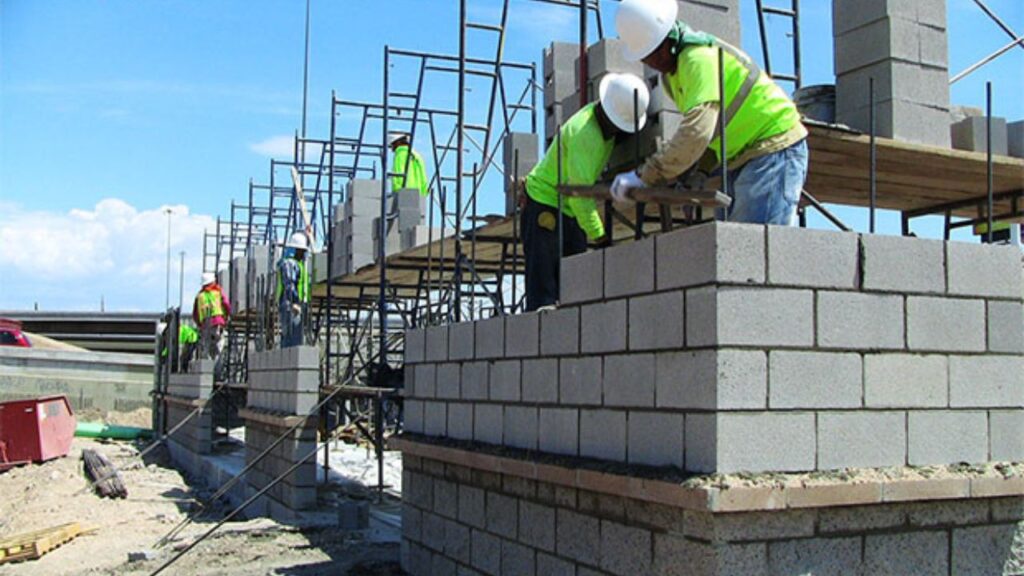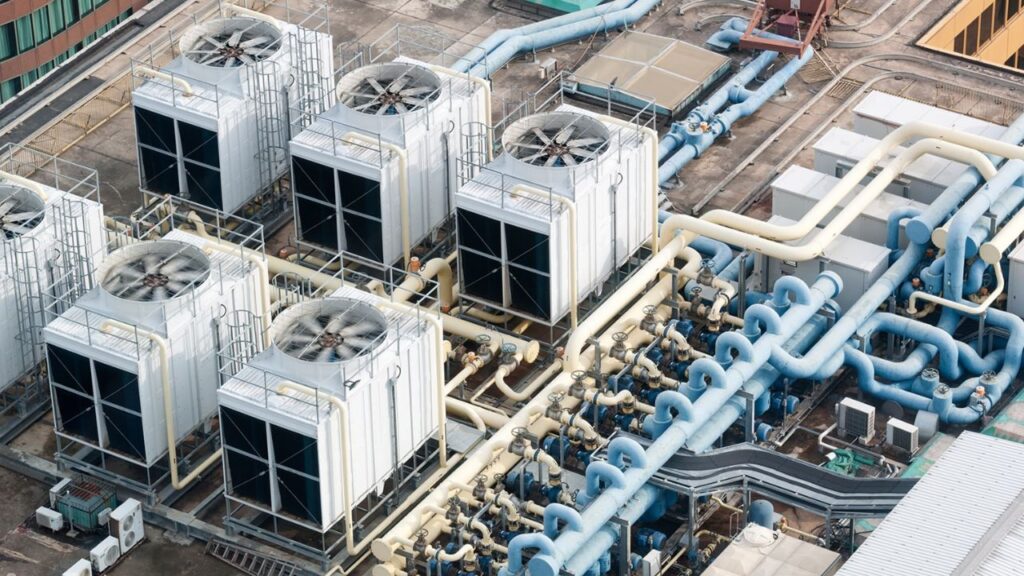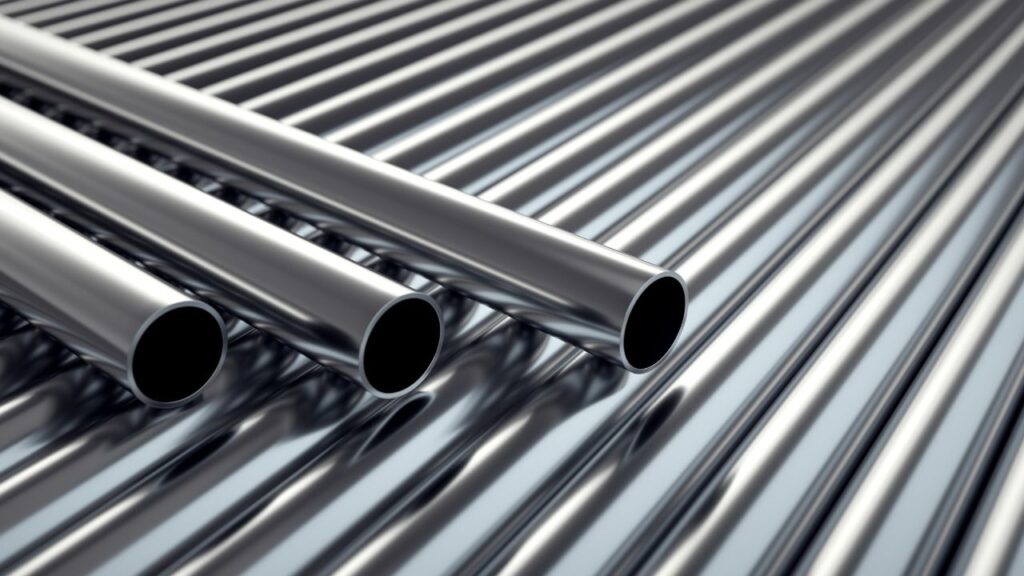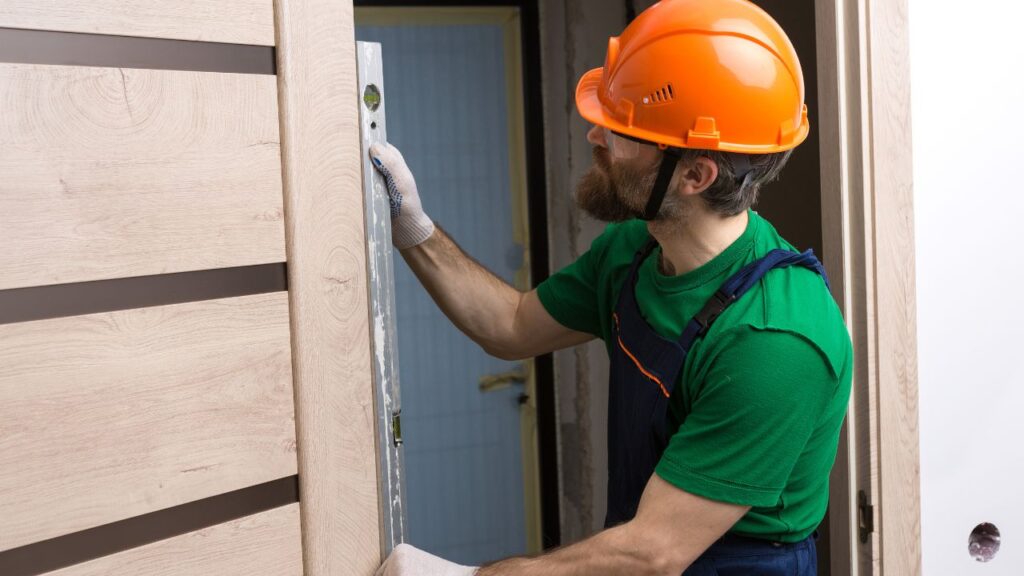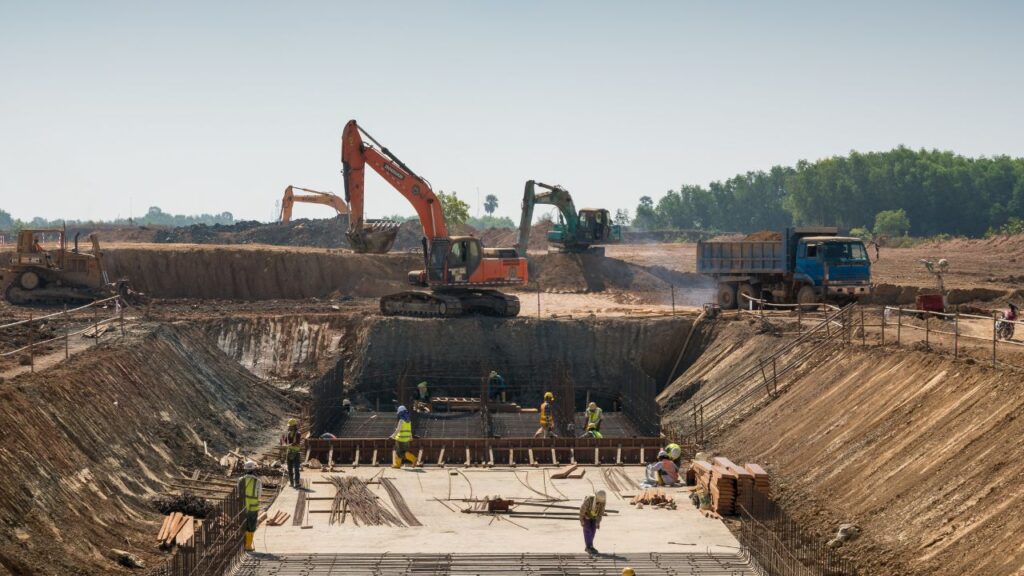- Homepage
- How Much Does it Cost to Build a Modern Glass House?
How Much Does it Cost to Build a Modern Glass House?
Leading provider of modern glass house services.
Building a modern glass house typically costs between $507,500 and $1,131,000, translating to $250 to $550 per square foot for a 2,030 sq ft structure. The total cost includes high-quality glass, steel framing, specialized labor, site preparation, and interior finishes. Lower-end costs cover standard materials and basic designs, while higher-end costs involve premium materials, custom designs, advanced insulation, and smart home features. Factors affecting the cost per square foot include location, complexity of the design, material quality, and local labor rates. Proper planning and budgeting for unexpected expenses are crucial to keep the project within the estimated cost range.
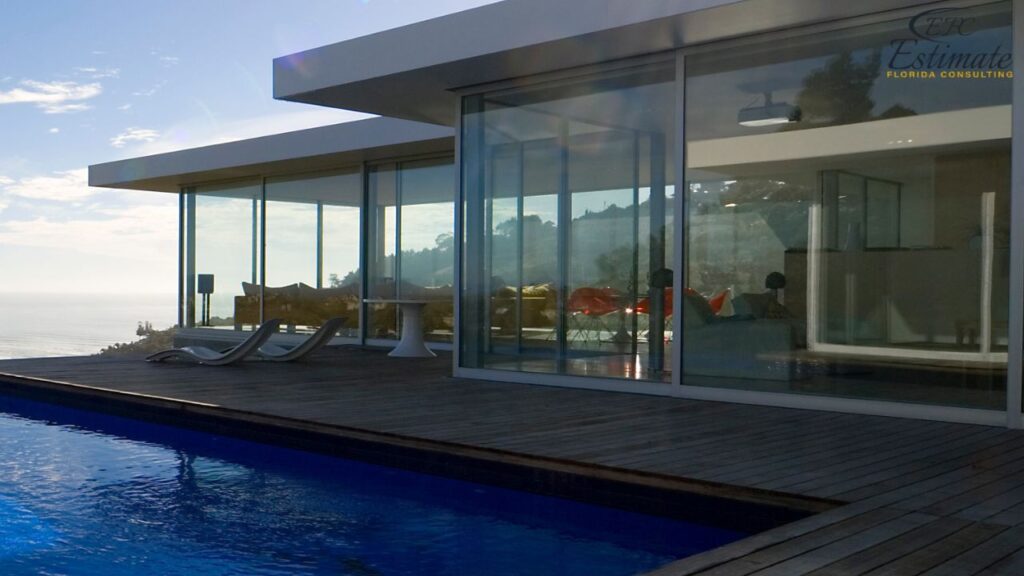
Cost Breakdown for Building a Modern Glass House
Materials
The cost of materials for a glass house can vary widely depending on the quality and type of materials used. Here’s a detailed breakdown of the typical costs:
Material | Estimated Cost per Sq Ft (in dollars) | Total Cost for 2,500 Sq Ft (in dollars) |
Glass Panels | $52 – $130 | $130,000 – $325,000 |
Steel Frame | $26 – $65 | $65,000 – $162,500 |
Insulation | $2.60 – $6.50 | $6,500 – $16,250 |
Roofing | $13 – $26 | $32,500 – $65,000 |
Flooring | $6.50 – $19.50 | $16,250 – $48,750 |
Glass Panels
Glass panels are the most distinctive and costly component of a modern glass house. The price depends on the type of glass used, such as double-glazed, low-E, or tempered glass, which offer different levels of insulation and safety. High-quality glass panels ensure energy efficiency and durability, making them a worthwhile investment. The cost of glass can also be influenced by the size and custom shapes required for the design.
Steel Frame
The steel frame provides the structural support needed to hold the glass panels in place. It must be strong and precisely engineered to handle the weight and stress of the glass. The cost of the steel frame depends on the design complexity and the quality of the steel used. A well-constructed steel frame ensures the stability and longevity of the glass house, providing a robust structure that can withstand various environmental conditions.
Insulation
Proper insulation is crucial for maintaining a comfortable indoor temperature and enhancing energy efficiency. Insulation materials can vary, but they typically include foam, fiberglass, or other high-performance materials. Insulating a glass house requires careful consideration to avoid thermal bridging and ensure maximum efficiency. High-quality insulation helps reduce energy costs and improve indoor comfort by maintaining consistent temperatures throughout the year.
Roofing
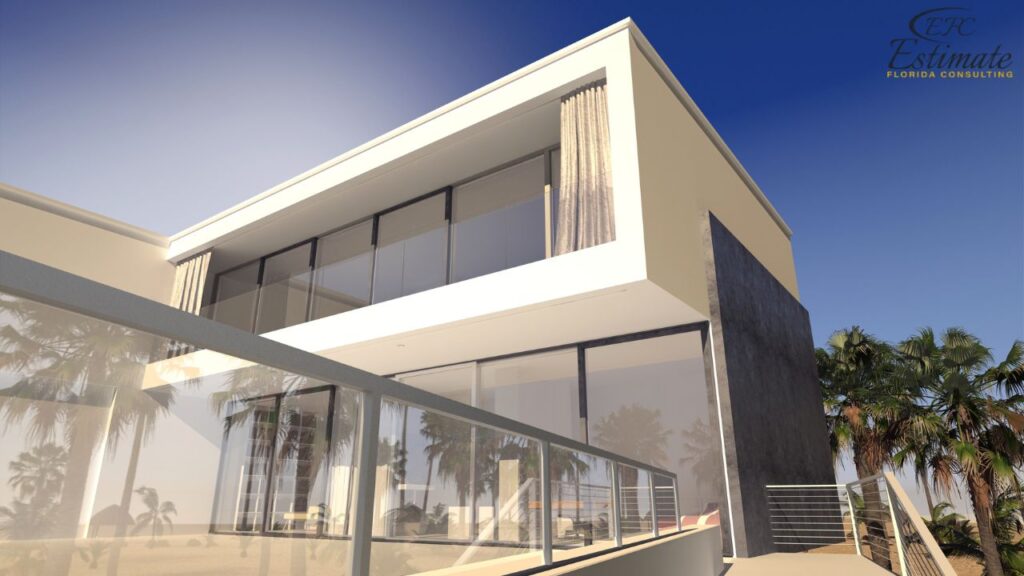
The roofing material must complement the design of the glass house while providing adequate protection from the elements. Options include metal, green roofs, or even glass roofing panels. The choice of roofing material will impact both the cost and the overall aesthetic of the house. A well-designed roof not only enhances the visual appeal of the house but also contributes to its energy efficiency and weather resistance.
Flooring
The choice of flooring material can significantly impact the overall look and feel of the glass house. Options include hardwood, polished concrete, or high-end tiles. The cost varies based on the material chosen and the quality of the installation. High-quality flooring materials add to the aesthetic appeal and durability of the house, creating a comfortable and visually appealing living space.
Labor Costs
Labor costs are a significant part of the overall construction budget. Here’s an estimate:
Labor Task | Estimated Cost per Sq Ft (in dollars) | Total Cost for 2,500 Sq Ft (in dollars) |
Site Preparation and Excavation | $3.90 – $7.80 | $9,750 – $19,500 |
Foundation Work | $6.50 – $13 | $16,250 – $32,500 |
Steel Frame Installation | $13 – $26 | $32,500 – $65,000 |
Glass Installation | $19.50 – $39 | $48,750 – $97,500 |
Roofing Installation | $6.50 – $13 | $16,250 – $32,500 |
Flooring Installation | $6.50 – $13 | $16,250 – $32,500 |
Electrical and Plumbing | $13 – $26 | $32,500 – $65,000 |
Insulation Installation | $2.60 – $5.20 | $6,500 – $13,000 |
Interior Finishing | $13 – $26 | $32,500 – $65,000 |
90% More Chances to Modern Glass House Bids with Our Estimate
Site Preparation and Excavation
Site preparation involves clearing the land, leveling, and excavating to create a solid foundation for the house. This step is crucial to ensure the stability and longevity of the building. Proper site preparation helps prevent future structural issues and lays the groundwork for a smooth construction process. The cost of site preparation can vary depending on the site’s condition and the extent of work required.
Foundation Work
The foundation must be strong and precisely built to support the weight of the glass house. This includes pouring concrete footings and slabs. A well-constructed foundation is essential for the stability and durability of the house. The foundation must be designed to accommodate the specific requirements of the glass house, ensuring that it can support the weight and structure of the building.
Steel Frame Installation
Installing the steel frame requires skilled labor and precision. The frame must be accurately assembled to ensure the glass panels fit perfectly and are securely held in place. Skilled labor ensures that the steel frame is correctly aligned and properly secured, providing a solid structure for the glass house. Proper installation of the steel frame is critical for the overall stability and safety of the house.
Glass Installation
Installing the glass panels is a delicate and precise task. It requires experienced professionals to ensure the glass is correctly fitted and sealed to prevent leaks and ensure energy efficiency. Proper installation is crucial to avoid damage to the glass and ensure its longevity. The installation process must be carefully managed to ensure that the glass panels are securely fixed and provide the desired aesthetic and functional benefits.
Roofing Installation
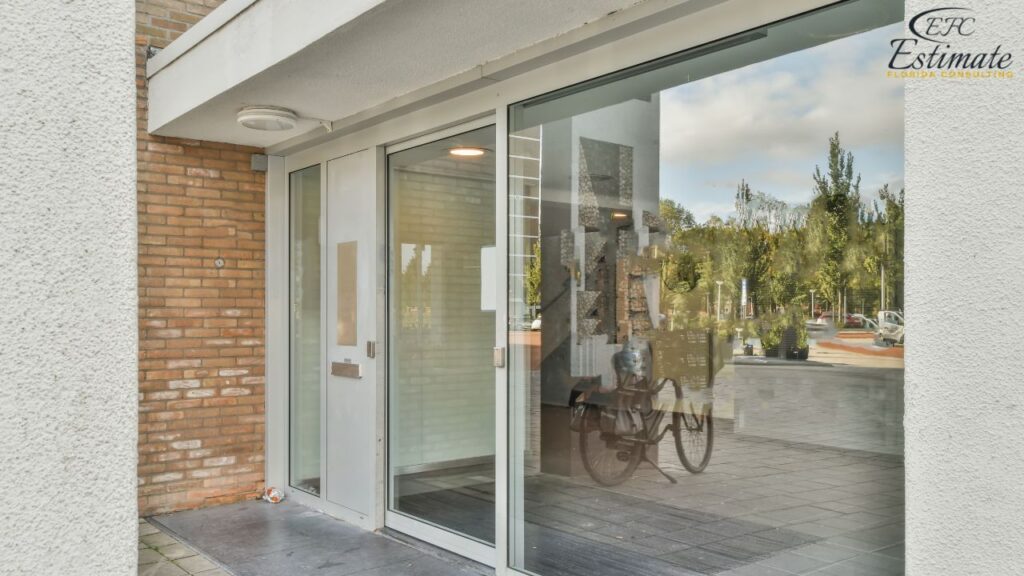
Roofing installation includes placing the roofing material, ensuring it complements the glass design while providing adequate protection. Proper roofing installation ensures that the house is weatherproof and energy-efficient. The roofing material must be carefully selected and installed to provide the necessary protection while enhancing the overall aesthetic of the house.
Flooring Installation
Installing the flooring involves laying the chosen material, ensuring it is level and securely fixed. High-quality installation is essential to achieve a durable and visually appealing finish. The flooring must be installed with precision to ensure a smooth and level surface, providing a comfortable and attractive living space.
Electrical and Plumbing
Installing electrical and plumbing systems involves running the necessary wiring and pipes, setting up lighting, HVAC systems, and ensuring proper drainage and water supply. These systems are vital for the building’s functionality and safety. Properly installed electrical and plumbing systems ensure reliable and safe operation, reducing the risk of malfunctions and the need for future repairs.
Insulation Installation
Insulation installation is critical for maintaining temperature control within the house, reducing energy costs, and providing a comfortable interior environment. Proper insulation helps maintain indoor air quality and noise reduction, creating a more pleasant living environment. High-quality insulation materials and proper installation are essential to maximize the energy efficiency of the glass house.
Interior Finishing
Interior finishing includes tasks like painting, installing fixtures, and completing any custom features. High-quality finishes enhance the overall look and feel of the glass house. Proper interior finishing ensures that the house meets your specific needs and preferences, creating a comfortable and visually appealing living space.
For Modern Glass House and Other Projects
Turnaround time is 1-2 days.
Win More Projects With Us
Additional Costs
Additional costs can include permits, inspections, and site improvements. Here’s an estimate:
budgeting:
Additional Component | Estimated Cost (in dollars) |
Permits and Inspections | $6,500 – $13,000 |
Site Utilities (Water, Sewer, etc.) | $13,000 – $26,000 |
Site Improvements (Landscaping, Paving, etc.) | $19,500 – $39,000 |
Miscellaneous Expenses | $6,500 – $13,000 |
Permits and Inspections
Obtaining the necessary permits and passing inspections are crucial steps in the construction process. These ensure that your building complies with local building codes and regulations. Permit and inspection fees can vary by location, but they are essential for legal compliance and safety assurance. Proper documentation and approval processes help avoid legal issues and ensure the building meets all safety and quality standards. Permits and inspections provide a safeguard for the project’s integrity and legal standing. Ensuring all required permits are in place before construction begins can prevent costly delays and legal issues. Working with experienced professionals can help navigate the permitting process efficiently.
Site Utilities
Installing site utilities, such as water, sewer, and electrical connections, is necessary for the building’s functionality. The cost depends on the distance to existing utility lines and the complexity of the installation. Proper utility connections are essential for daily operations and overall efficiency. High-quality utility installations ensure reliable service and reduce the risk of disruptions. Ensuring proper utility connections also contributes to the building’s compliance with health and safety standards. Planning for future utility needs and potential expansions can optimize long-term operational efficiency. Advanced utility installations, such as smart meters and energy management systems, can further enhance operational efficiency.
Site Improvements
Site improvements include landscaping, paving, and any other enhancements to the exterior of the building. These improvements can enhance the appearance and functionality of the site. Quality landscaping can significantly improve the aesthetic appeal of your property, making it more inviting and increasing its value. Properly designed and executed site improvements can also enhance the usability of outdoor spaces, providing areas for recreation, relaxation, and efficient operations. Investing in site improvements can create a more pleasant environment for occupants and visitors. Additionally, incorporating sustainable landscaping practices can reduce maintenance costs and environmental impact. Site improvements can also include features such as outdoor lighting, signage, and security systems, further enhancing the site’s functionality and safety.
Miscellaneous Expenses
Miscellaneous expenses can include unexpected costs that arise during the project, such as additional materials, equipment rentals, or unforeseen repairs. Having a contingency budget for these expenses helps ensure that the project stays on track and can handle any surprises without significant delays or cost overruns. Planning for contingencies provides financial flexibility and peace of mind. Including a contingency budget demonstrates thorough planning and risk management, which can instill confidence in stakeholders and financial backers. Contingency planning also allows for quicker response to unexpected issues, minimizing project delays.
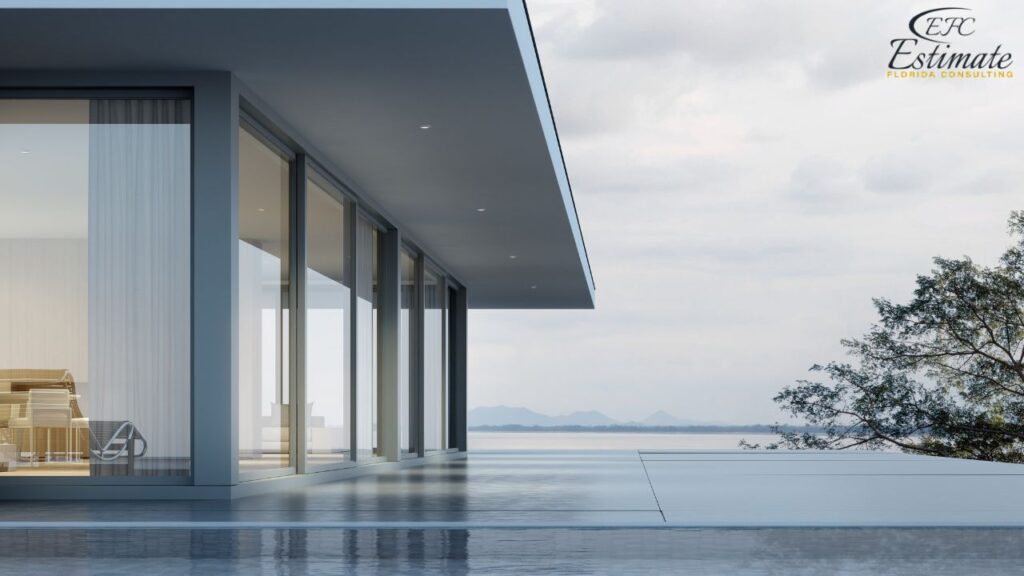
Properly managing miscellaneous expenses ensures the project remains within budget and on schedule, even when facing unforeseen challenges.
Factors Influencing the Cost of a Modern Glass House
Customization Options
The level of customization chosen for the building can significantly impact the cost. Custom features such as specialized doors, unique roof designs, and personalized interior finishes can increase the overall price. However, these features can also add significant value and functionality to the building, making it worth the investment. Customization allows you to tailor the building to your specific needs, enhancing its usability and appeal. Investing in unique design elements can also differentiate your building from standard constructions, potentially increasing its market value. High-quality custom features can improve the building’s performance, durability, and aesthetic appeal.
90% More Chances to Win Projects With Our Estimate!
- Multi-Family Building
- Hotel Building
- Hospital Building
- Warehouse Building
- School & University Building
- High-Rise Building
- Shopping Complex
- Data Center Building
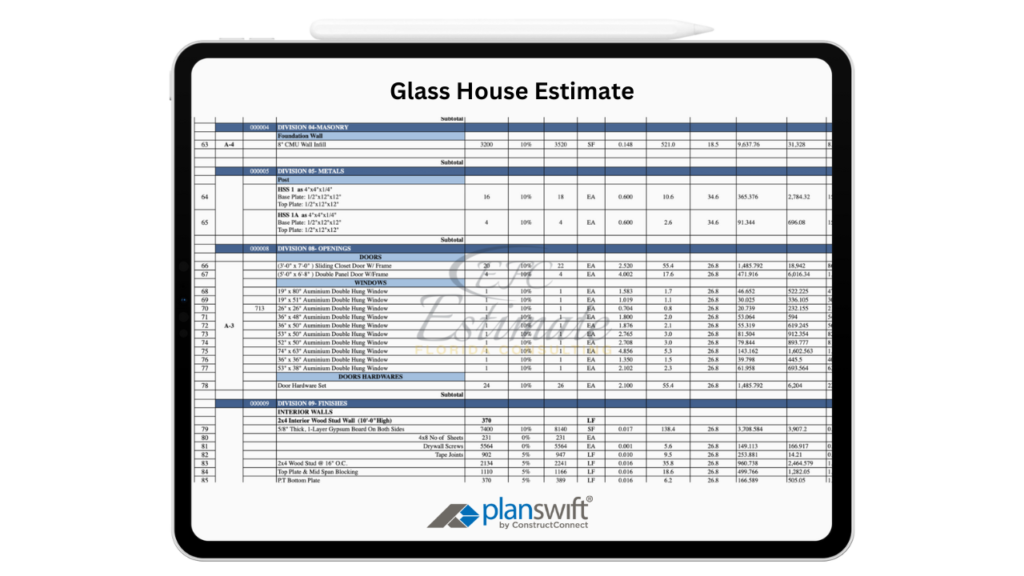
Building Site
The location and condition of the building site can affect costs due to varying land prices, labor rates, and local building codes. Urban areas typically have higher costs compared to rural locations. Additionally, proximity to suppliers and transportation networks can influence logistical costs and operational efficiency. Selecting an optimal location can balance cost and operational needs. The site’s geographic and environmental conditions can also affect construction methods and materials, further impacting costs. Conducting thorough site assessments and planning can mitigate potential challenges and optimize construction efficiency. Site selection should consider factors such as accessibility, utility availability, and potential environmental hazards.
Market Conditions
Market conditions, including the availability of materials and labor, can influence costs. Fluctuations in material prices and labor availability can cause costs to vary. Monitoring market trends and securing contracts early can help lock in prices and avoid unexpected cost escalations. Staying informed about market conditions can aid in strategic planning and budgeting. Economic factors such as inflation, supply chain disruptions, and demand fluctuations can also impact overall project costs and timelines. Engaging with reliable suppliers and contractors can help mitigate the impact of market volatility. Developing strong relationships with suppliers and contractors can lead to better pricing, quality, and service.
Regulatory Requirements
Regulatory requirements and building codes vary by location and can affect construction costs. Compliance with local regulations, permits, and inspections is essential for legal and safety reasons. Understanding these requirements early in the planning process can help avoid delays and additional expenses. Proper documentation and approval processes ensure the building meets all safety and quality standards, providing peace of mind and preventing costly fines or delays. Collaborating with experienced professionals familiar with local regulations can streamline the compliance process. Ensuring all regulatory requirements are met can prevent legal complications and enhance project credibility.
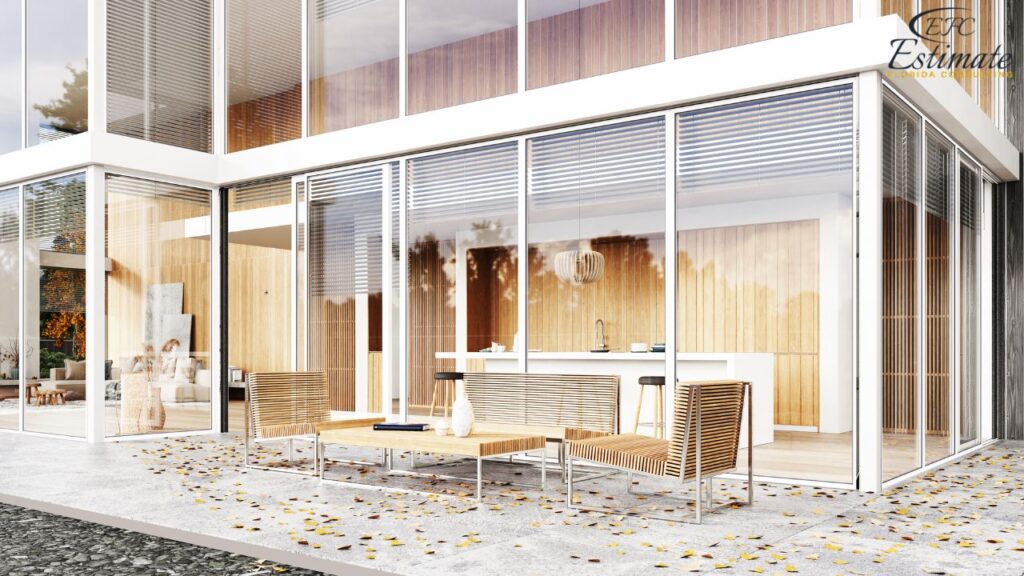
Staying updated on changes in regulations can help avoid future compliance issues and associated costs.
Detailed Cost Comparison
Materials
The quality of materials used for construction can affect both the initial cost and the long-term performance of the building. Higher-quality materials tend to be more durable and reliable but come with a higher price tag.
Material Quality | Estimated Cost per Sq Ft (in dollars) | Total Cost for 2,500 Sq Ft (in dollars) |
Basic | $100.10 | $250,250 |
Mid-Range | $166.85 | $417,125 |
High-End | $247.00 | $617,500 |
Labor Complexity
The complexity of the construction job can influence labor costs. More complex installations, such as those involving specialized systems or extensive interior finishes, will require more time and expertise.
Labor Complexity | Estimated Cost per Sq Ft (in dollars) | Total Cost for 2,500 Sq Ft (in dollars) |
Basic | $84.50 | $211,750 |
Mid-Range | $126.75 | $317,125 |
High-End | $169.00 | $422,500 |
Additional Features
Adding additional features to the building, such as advanced security systems, climate control, or enhanced lighting, can increase the overall cost but provide enhanced functionality and convenience.
Feature | Estimated Cost (in dollars) |
Advanced Security Systems | $6,500 – $13,000 |
Climate Control Systems | $7,800 – $15,600 |
Enhanced Lighting | $3,900 – $7,800 |
Download Template For Glass House Building Project Breakdown
- Materials list updated to the zip code
- Fast delivery
- Data base of general contractors and sub-contractors
- Local estimators

Cost-Saving Tips
Plan Ahead
Planning the construction project early can help identify potential issues and reduce costs. Consider future needs and include features that can accommodate growth and changes in operations. Early planning allows for more efficient project management and resource allocation. Engaging with professionals early in the planning process can ensure all aspects are considered, leading to a more streamlined and cost-effective project. Comprehensive planning can also identify opportunities for cost-saving measures and efficiency improvements. Early engagement with suppliers and contractors can secure better pricing and availability.
Get Multiple Quotes
Obtain multiple quotes from contractors to compare prices and services. This can help you find the best deal and ensure that you’re getting quality work at a competitive price. Additionally, checking references and reviewing past projects can provide insights into the contractor’s reliability and workmanship. Competitive bidding can encourage better pricing and service offerings, enhancing overall project value. Building strong relationships with contractors can also lead to better terms and potential discounts. Negotiating with contractors based on multiple quotes can also result in cost savings.
Use Standard Designs
Opt for standard designs and materials instead of custom or high-end options. Standard designs are often more affordable and readily available, helping to reduce overall costs. Using pre-engineered building designs can also streamline the construction process and reduce costs. Standardized designs can simplify permitting and regulatory compliance, reducing the time and cost associated with approval processes. Additionally, standard designs often benefit from established supply chains and proven construction methods, further enhancing efficiency and cost savings. Choosing standard design options can also speed up the construction timeline.
Perform Some Tasks In-House
If you have the expertise and resources, consider performing some tasks in-house, such as site preparation or interior finishing. This can save on labor costs and provide more control over the project. However, it’s important to ensure that all work meets safety and quality standards. Leveraging in-house capabilities can also enhance project flexibility and responsiveness, allowing for efficient management of resources and timelines. Performing tasks in-house can also build internal skills and knowledge, benefiting future projects and maintenance needs. Careful planning and coordination can ensure that in-house tasks are completed efficiently and effectively.
Plan for Contingencies
Include a contingency budget of 10-20% to cover unexpected expenses. This ensures that you are prepared for any unforeseen issues that may arise during the project. Planning for contingencies can provide peace of mind and financial flexibility, allowing you to address any surprises without derailing your budget. A well-planned contingency budget can enhance project resilience and ensure successful completion despite unforeseen challenges. Being prepared for unexpected costs demonstrates thorough planning and risk management, which can instill confidence in stakeholders and financial backers. Contingency planning also allows for quicker response to unexpected issues, minimizing project delays.
Conclusion
Building a modern glass house is a significant investment that requires careful planning and budgeting. By understanding the various costs involved and the factors that influence these costs, you can make informed decisions and ensure the success of your building project. Investing in high-quality materials, working with experienced professionals, and planning for contingencies can ensure a successful and cost-effective construction process. Properly managing the project not only ensures compliance with safety standards but also maximizes the long-term benefits of the investment. Taking a proactive approach to project management and budgeting can lead to a successful outcome, providing a functional, efficient, and valuable asset that supports your specific needs and goals for years to come. By considering all aspects of the construction process and leveraging best practices in project planning and execution, you can achieve a high-quality building that meets your expectations and delivers significant return on investment. Comprehensive planning and execution will help you navigate challenges, optimize resources, and achieve a building that enhances your operational efficiency and meets all regulatory and safety requirements. With the right approach, you can create a glass house that serves your needs and provides long-term value, ensuring that your investment pays off in the years ahead.
Frequently Asked Question
Building a modern glass house typically costs between $507,500 and $1,131,000, or $250 to $550 per square foot for a 2,030 sq ft structure.
Key factors include location, design complexity, material quality, local labor rates, and the level of customization and advanced features such as smart home systems and high-end finishes.
The cost of glass varies based on the type, such as double-glazed, low-E, or tempered glass, which offer different levels of insulation and safety. High-quality glass panels enhance energy efficiency and durability, influencing the overall budget significantly.
Major material costs include glass panels ($52 – $130 per sq ft), steel framing ($26 – $65 per sq ft), insulation ($2.60 – $6.50 per sq ft), roofing ($13 – $26 per sq ft), and flooring ($6.50 – $19.50 per sq ft).
Labor costs encompass site preparation and excavation, foundation work, steel frame installation, glass installation, roofing, flooring, electrical and plumbing, insulation, and interior finishing, with each category contributing significantly to the overall budget.
Additional costs include permits and inspections ($6,500 – $13,000), site utilities ($13,000 – $26,000), site improvements such as landscaping and paving ($19,500 – $39,000), and miscellaneous expenses ($6,500 – $13,000).
Cost-saving strategies include planning ahead, obtaining multiple quotes from contractors, using standard designs, performing some tasks in-house if possible, and including a contingency budget for unexpected expenses.
Comprehensive Trade-Specific Estimates
At Estimate Florida Consulting, we offer detailed cost estimates across all major trades, ensuring no part of your project is overlooked. From the foundation to the finishing touches, our trade-specific estimates provide you with a complete and accurate breakdown of costs for any type of construction project.

Testimonials
What Our Clients Say
We take pride in delivering accurate, timely, and reliable estimates that help contractors and builders win more projects. Our clients consistently praise our attention to detail, fast turnaround times, and the positive impact our estimates have on their businesses.
Estimate Florida Consulting has helped us win more bids with their fast and accurate estimates. We trust them for every project!

Steps to Follow
Our Simple Process to Get Your Estimate
01
Upload Plans
Submit your project plans, blueprints, or relevant documents through our online form or via email.
02
Receive Quotation
We’ll review your project details and send you a quote based on your scope and requirements.
03
Confirmation
Confirm the details and finalize any adjustments to ensure the estimate meets your project needs.
04
Get Estimate
Receive your detailed, trade-specific estimate within 1-2 business days, ready for your project execution.





